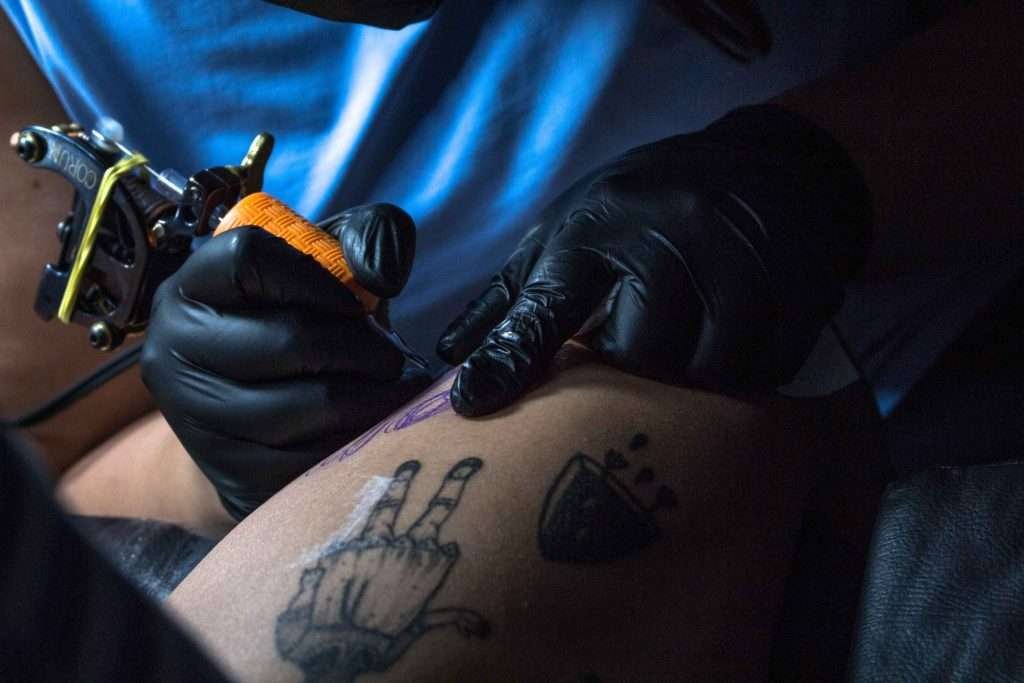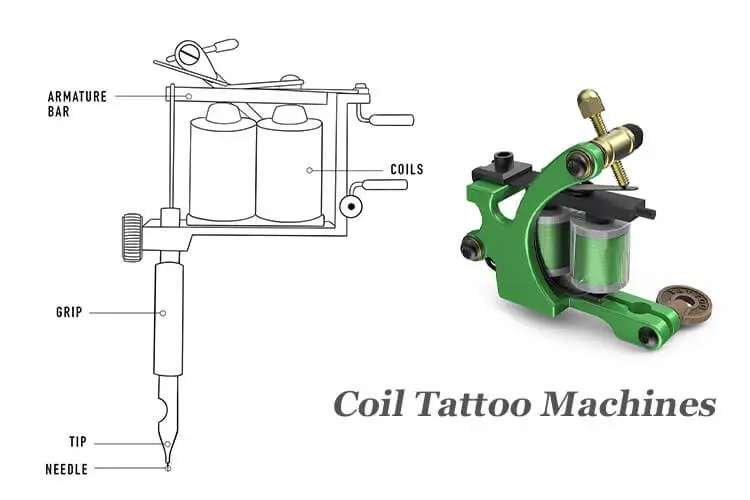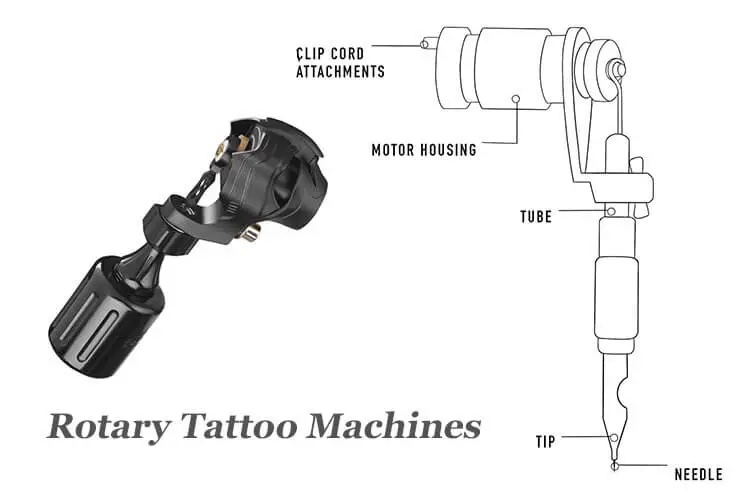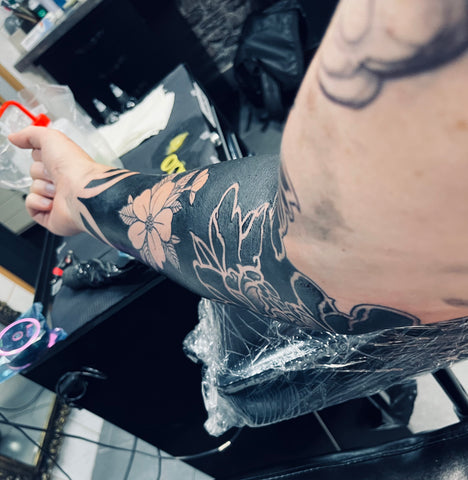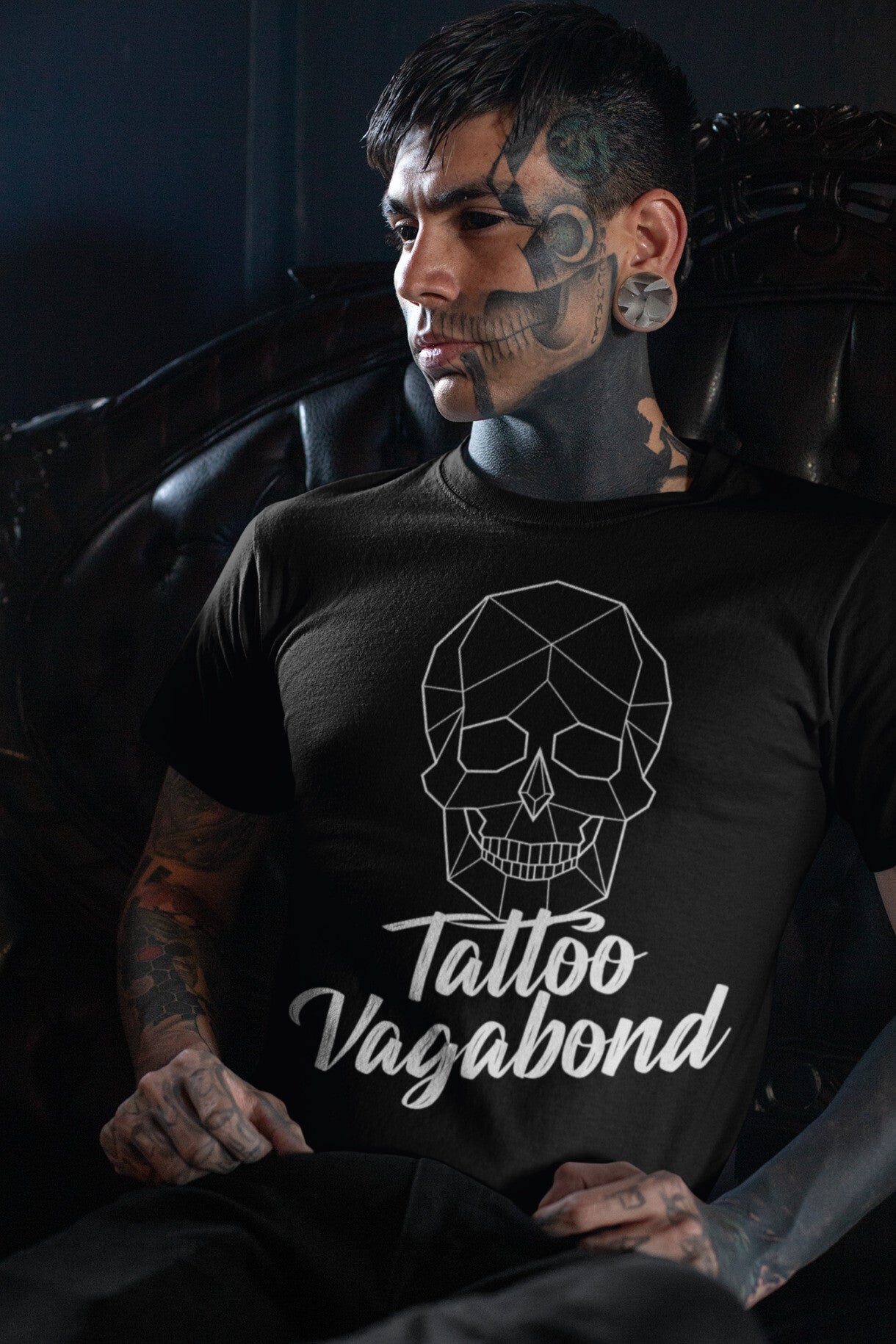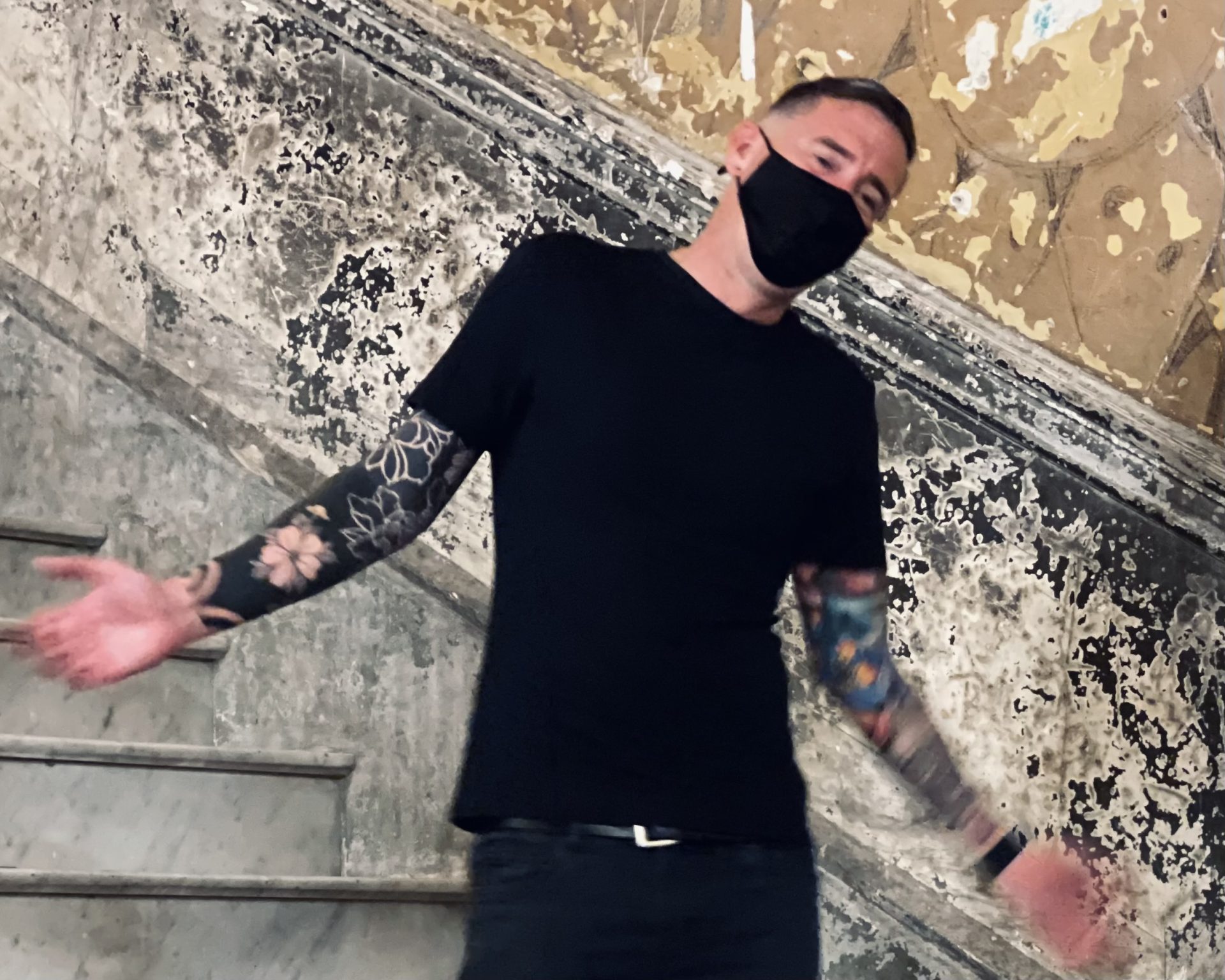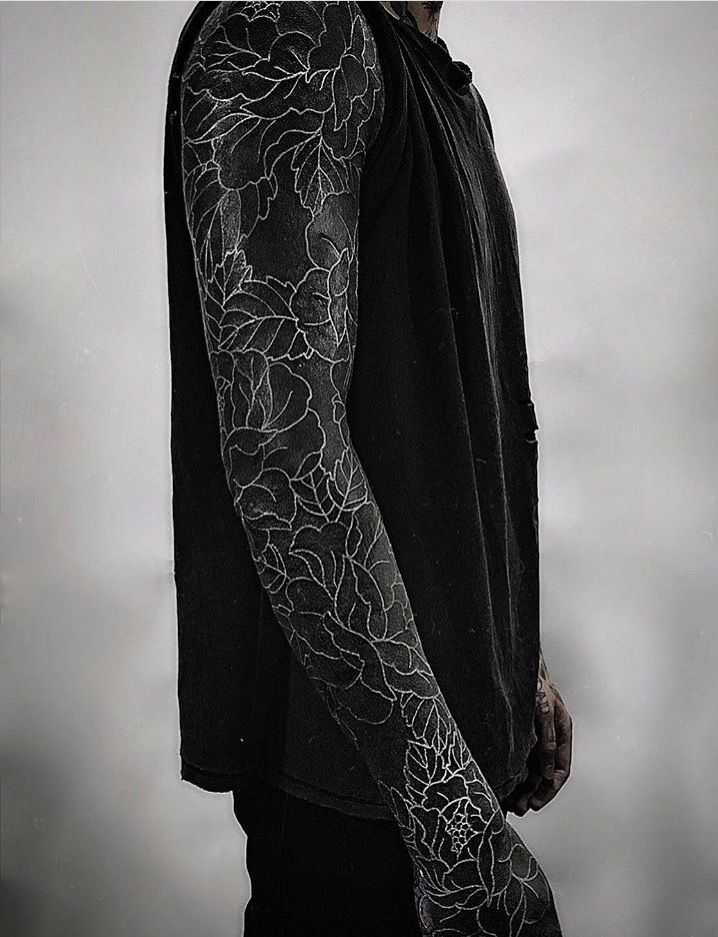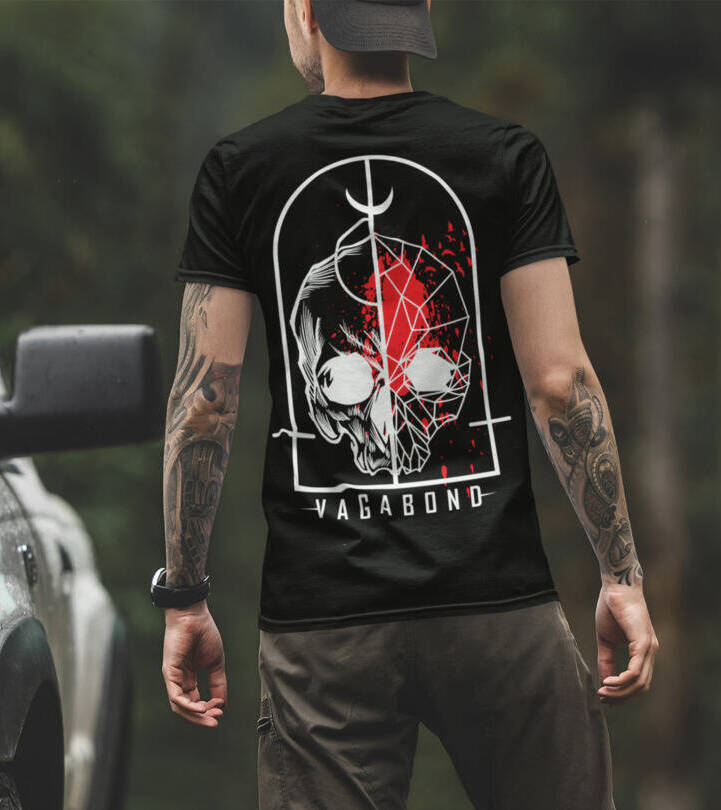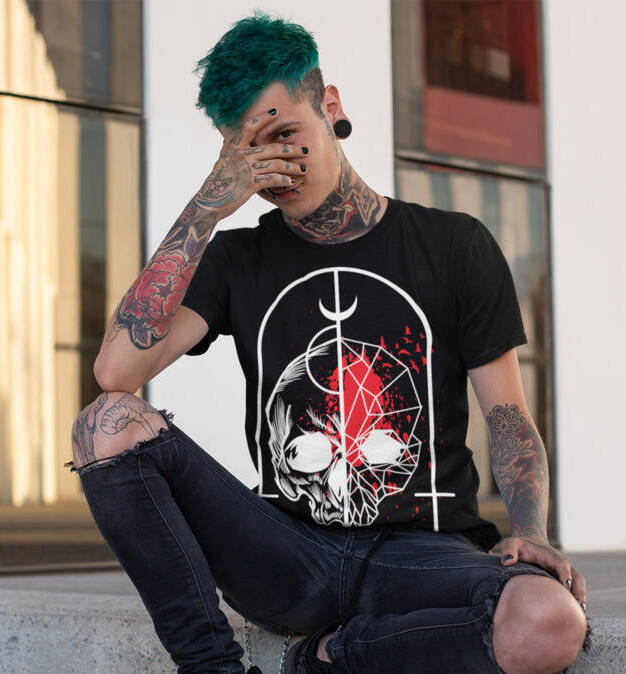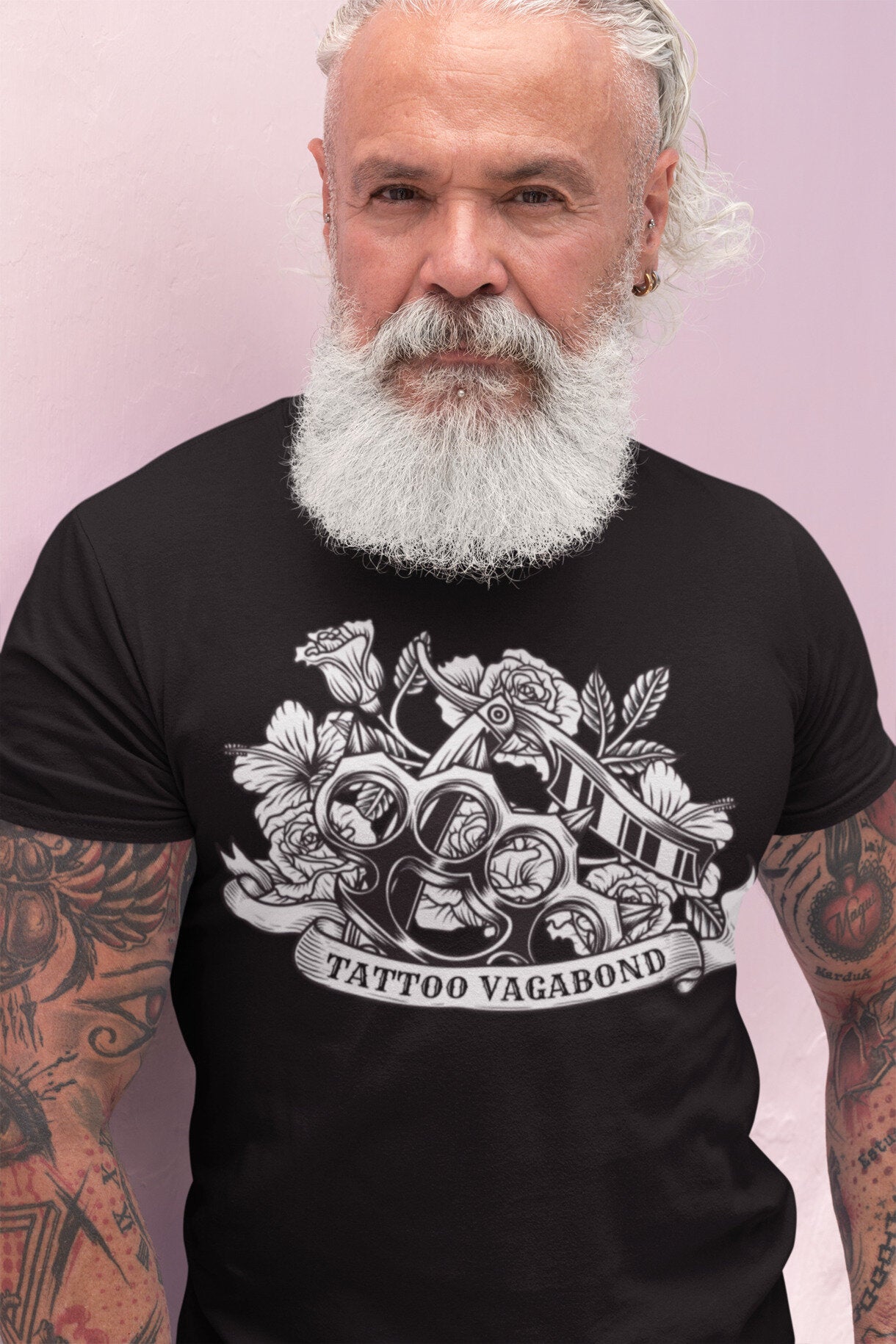A tattoo machine, often referred to as a tattoo gun, is a crucial tool in the world of tattooing. It’s an instrument that has evolved remarkably over the years, with numerous types and styles available to meet the diverse needs of tattoo artists.
This comprehensive guide aims to introduce you to the 4 most common types of tattoo machines, their applications and how to choose the right one. Unless you’re a ‘stick and poke’ hipster, here’s what you need to know about the primary tool of the trade, the tattoo gun.
The 4 most common types of tattoo machines
Understanding Tattoo Machines
Tattoo machines are fundamentally designed to drive tattoo needles into the skin to deposit ink, creating a permanent design. The first tattoo machines, dating back to 1891, were inspired by Thomas Edison’s electric pen.
Tattoo guns have since undergone a significant evolution, leading to the creation of varied types of tattoo machines, each with its unique features and benefits.
The 4 Main Types of Tattoo Machines
Broadly, there are four main types of tattoo machines: Coil, Rotary, Pneumatic and Hybrid. Each type has its distinctive features, pros, cons and is best suited for specific applications.
Coil Tattoo Machines
Coil tattoo machines are the most common and traditional type of tattoo machine. They use electromagnetic coils to power the needles. These machines are renowned for their power and are often used for heavy shading and color work. And for really heavy applications like blackouts, only a coil gun will do.
Coil guns are highly customizable, allowing artists to adjust various factors like spring tension and needle depth to suit their preferences. And back in the old days of tattooing, one test for apprentices was to build their own coil gun.
Characteristics of Coil Tattoo Machines
- Electromagnetic Coils: The number of wraps around the coils, usually between 8 and 16, determines the coil machine’s power.
- Armature Bar: This spring-loaded component moves up and down, driven by the electromagnetic coils, to move the needles.
- Noise: Coil machines produce the loud buzzing sound, which is synonymous with tattoo shops.
Uses of Coil Tattoo Machines
Coil machines are typically used for creating bold, intricate designs. They are ideal for heavy line work and solid color packing. They come in two main subtypes:
- Liner: These machines draw sharp lines while injecting ink. They are high-speed machines used for outlining tattoos.
- Shader: As the name suggests, shader machines are used for creating the dark parts of a tattoo. They are different from liners as the needle stays in contact with the skin longer.
Rotary Tattoo Machines
Rotary tattoo machines, first introduced in 2010, use an electric motor to drive the needles. They are quieter and lighter than coil machines, making them preferred by artists who do a lot of fine line work. These machines have fewer components, making them easier to maintain and clean.
Characteristics of Rotary Tattoo Machines
- Electric Motor: This is what drives the needles, converting the motor’s rotation into the needle’s reciprocation.
- Low Noise: Rotary machines are less noisy than coil machines, offering a quieter workspace for the artist.
- Lightweight: Due to fewer components, these machines are lighter, reducing the risk of wrist pain or discomfort during long sessions.
- Less Vibration: Rotary guns vibrate less than coil machines, further reducing the risk of wrist pain or discomfort for the artist during long tattoo sessions.
Uses of Rotary Tattoo Machines
Rotary machines are versatile and can be used for both lining and shading, depending on the speed and type of needles used. They are particularly suitable for fine, detailed work. There are several subtypes of rotary machines:
- Slider Machines: Although not very sensitive to power supply, these machines are popular due to their lightweight nature. However, they are also more expensive.
- Pen Tattoo Machines: These machines are popular worldwide due to their effectiveness and ease of use.
- Direct Drive Machines: In these machines, the motor helps the needle to move nonstop, with the speed and rotation controlled by a power unit.
Pneumatic Tattoo Machines
Pneumatic tattoo machines are unique, using compressed air to power the needle instead of an electric motor. They are quieter and lighter, making them suitable for fine-line work. Yet you likely won’t often see a pneumatic tattoo machine, as they’re a rarity in the tattoo community.
Characteristics of Pneumatic Tattoo Machines
- Air-Powered: These machines use compressed air as their power source, but they can also be powered by electrical current.
- Light and Quiet: Like rotary machines, pneumatic machines are light and quiet, providing a comfortable work environment for the artist.
Uses of Pneumatic Tattoo Machines
Pneumatic machines are typically used for fine, detailed work, and are especially favored by artists who work in shared studio spaces due to their quiet operation.
Hybrid Tattoo Machines
Hybrid tattoo machines are a combination of coil and rotary machines. They offer the advantages of both types, providing a versatile tool for artists who want the best of both worlds.
Choosing the Right Tattoo Machine
Choosing the right tattoo machine depends on the artist’s style, skill level and personal preference. Here are a few factors to consider:
- Simplicity: Look for a machine that is easy to use and requires minimal maintenance. Rotary machines are generally simpler than coil machines.
- Versatility: Choose a machine that can handle various tattooing styles, including lining and shading. All-in-one machines are a good option for beginners.
- Quality: Invest in a high-quality machine that will last for years. Cheaper machines may seem like a good deal but they often break down.
- Comfort: Select a machine that feels comfortable in your hand and doesn’t cause hand fatigue during long tattoo sessions.
- Brand Reputation: Choose reputable brands with good reviews and a track record of producing high-quality machines.
Conclusion
The best tattoo machine for an artist depends on their specific needs and style. Whether you prefer the traditional feel of a coil machine or the ease of use of a rotary machine, remember that the skill lies in the artist’s hand, not the machine.
By understanding the different types of tattoo machines available, you can make an informed decision and create stunning, high-quality tattoos that will last a lifetime.
